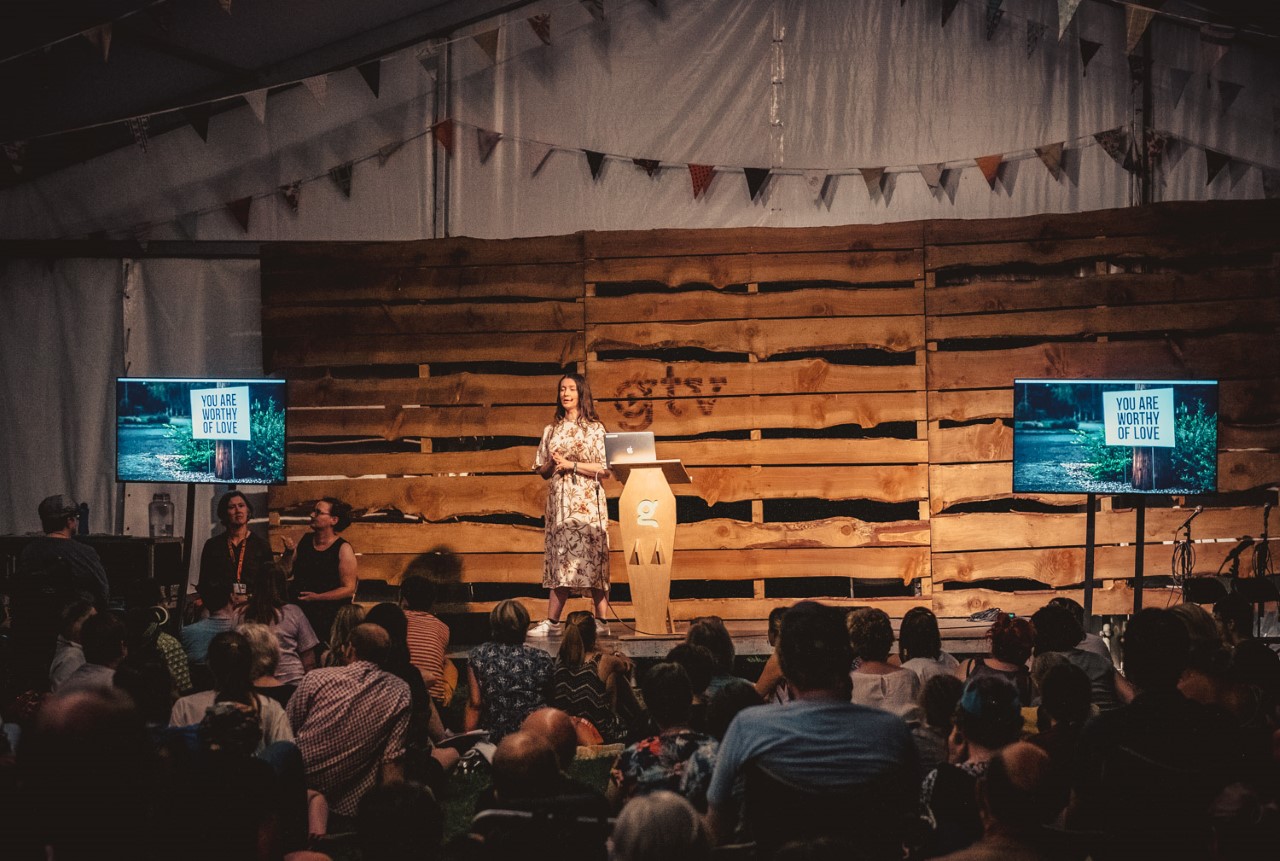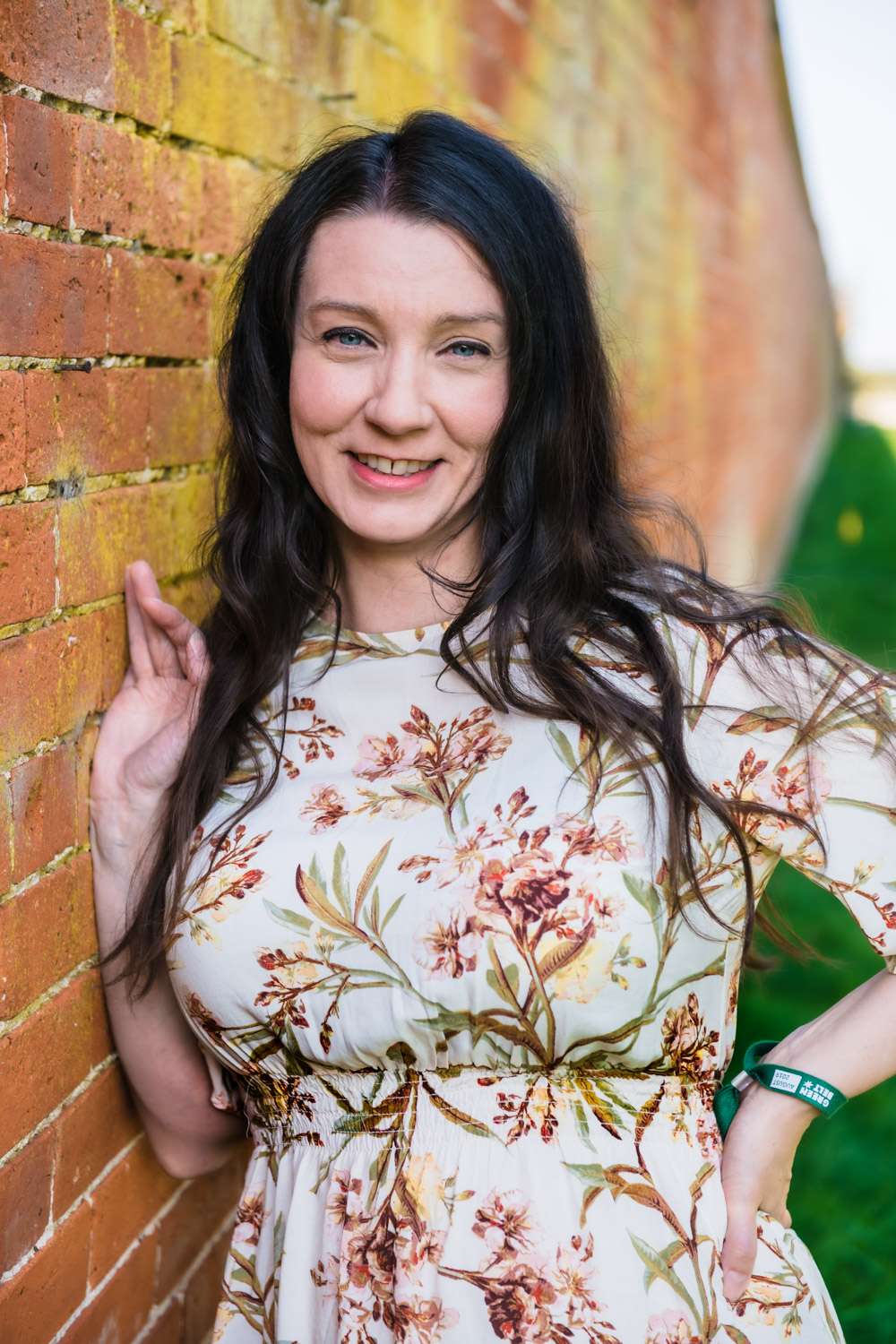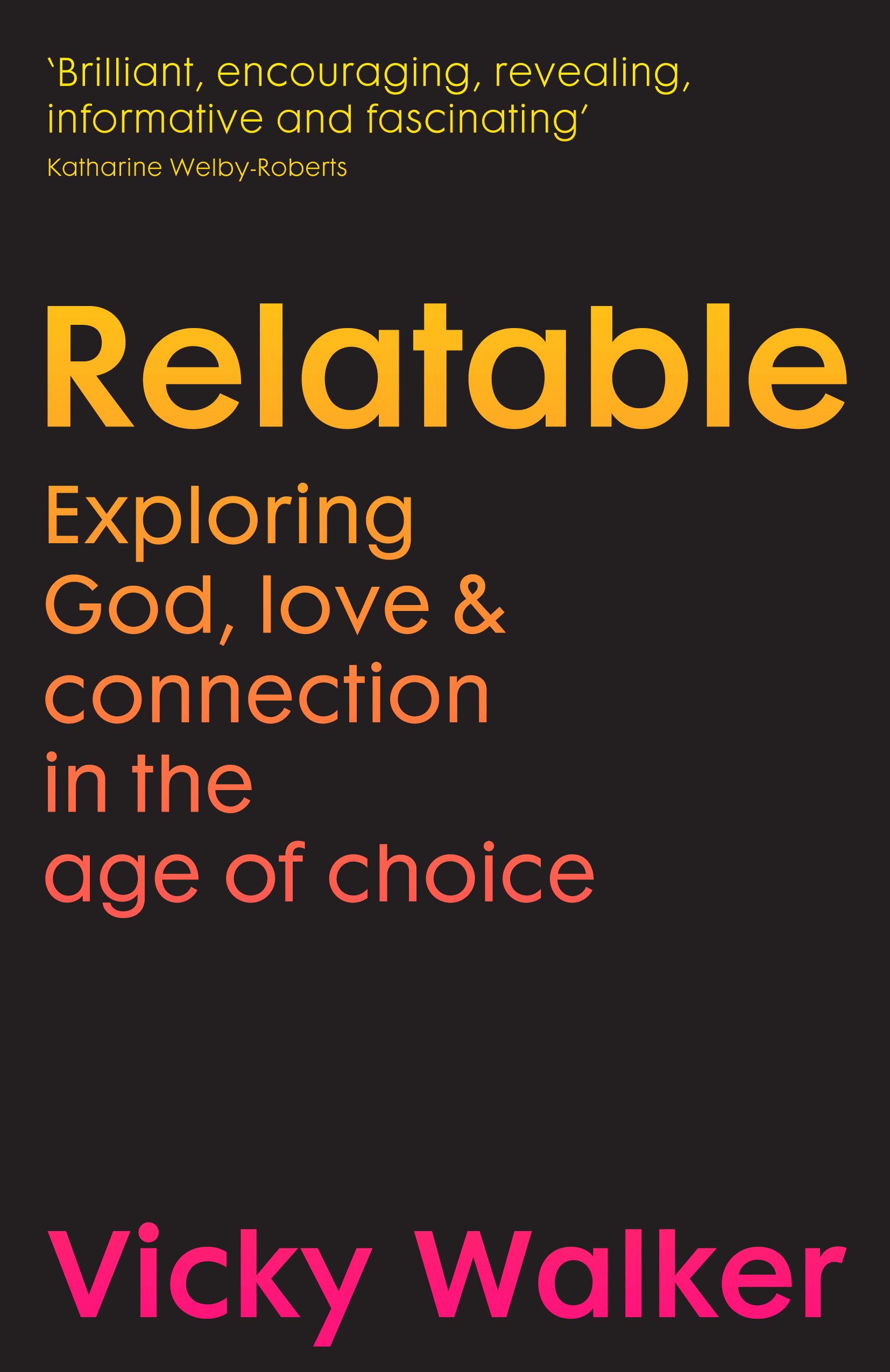Why do Christians idolise the traditional family?
The Church has an entrenched if historically inconsistent view of what marriage and relationships should look like. With more and more people living alone, it really needs to explore its past and widen its thinking, says writer and broadcaster Vicky Walker.
Interview by Alex Baker at this year's Greenbelt festival, where Vicky was a speaker

Can you introduce us to the thinking behind your talk?
I wrote a book, semi-accidentally. I was interested in how faith affected people’s relationship choices. The bit that’s made it into my talk is about the Church and the traditional family, what it means to be single and have faith, and why is the Church still so keen on marriage, in the traditional sense, as the ultimate way of life – not just an alternative but the very pinnacle of human life? So, you haven’t made it in life until you’ve said, “I do” in front of 200 people (which is the ideal number, as I discovered from my research).
I wanted to dig into that, to see what helped people and what didn’t.
How do we go about the challenging some of these stereotypes about relationships? What would you like to see?
I’ve actually gone about it historically. I’ve gone back to see how we ended up here. I think it’s interesting to go back and see how it all became so entwined. That marriage, the Church and Christianity became this odd hybrid. People speak about it as being “Christian marriage”, but when you go back in time you find it hasn’t really ever been such a thing.
 The Old Testament was all about polygamy and dowries; the New Testament really advocated for singleness. Only get married if you really can’t keep your legs crossed. When you then think about what Christian marriage should look like, you go through various phases of history and add up the Reformation, Tudor times, Victorian respectability, the prosperity gospel feeding into that, right through to the wars and the 1950s. All these elements have combined into something we think of as “Christian marriage”.
The Old Testament was all about polygamy and dowries; the New Testament really advocated for singleness. Only get married if you really can’t keep your legs crossed. When you then think about what Christian marriage should look like, you go through various phases of history and add up the Reformation, Tudor times, Victorian respectability, the prosperity gospel feeding into that, right through to the wars and the 1950s. All these elements have combined into something we think of as “Christian marriage”.
It’s actually hard to disempower that without thinking, “Why are we still so attracted to it, and why does it appeal?” Part of it is just how spiritualised it’s become. People feel that if they’re not married then they’re missing something. This Greek thinking has come in: that you’ll find your other half. All that language is really common.
Short of winning an Oscar the only way I, as a single person, could get a huge number of social media likes would be have someone stand beside me and say “we’re getting married”. For a lot of single people there is a lack of milestones, a sense of achievement and recognition, that their lives are equally valid. They’re often doing things which are as interesting, if not more so, than their relationship status.
So what could be different? How do we strip back that power? How do we validate people who haven’t married? So there’s lots of areas of interest like marking milestones and communal eating. The history was interesting because it wasn’t until Victorian times that celebrations that we now value as family celebrations were communal. Christmas was public and weddings were private. But we’ve switched that around. So the things that matter to us publicly are weddings, whereas Christmas we’ve taken away and made private.
Learning from the past helps us to learn how we lost the importance of community. People who contacted me who lived by themselves raised serious concerns about what would happen to them if they fell ill, or got older, or couldn’t afford to buy a house. Unless we start addressing those bigger conversations I don’t think it will change.
More generally, how are contemporary relationships changing?
It’s a global shift. More people are living alone globally than ever before. I think it may be the case that half the population of the USA is single. There is a shift away from the traditional family unit. There are now millions globally who live solo because of how society is structured.
And yet the Church is disproportionately skewed towards a marriage culture. The Church has more married people in it than society in general. The Church has twice as many women as it has men. And those women are being told by the Church that in order to grow into the fullness of their life they will need to get married and do so within the Church.
The Church has to perhaps look outside itself to see how society is changing. Out in society there are new shapes of living.
There are, of course, people in society who are choosing to live together but that is sometimes more to do with finances than any desire to live with someone. There are those who chose a new kind of monastic living or enter the priesthood. And there are those who choose a scattered community. They live separately but still commit and prioritise each other.
But will the Church recognise that society is changing? It’s difficult because the Church has an entrenched if historically inconsistent view of what marriage and relationships should look like. For it to change the Church would need to listen to single people which, of course, is a difficulty if the Church sees marriage as the only way to be. Remember, single people are seen as being in a state of “waiting”. Not fulfilled in their own right. Not when marriage is on a pedestal the whole time. It has to be talked about more otherwise it won’t change.
Unfortunately it has also become a political issue. You see right-wing populist leaders who align themselves with Christianity in order to push a very traditional, conservative views on family values and status.

What role is technology playing in relationships?
I think it is playing a role in affecting our relationships, although not negatively. I don’t think the Church has begun to consider what could be some amusing ethical dilemmas. For example, celibacy. If you’re not meant to touch another person what happens when you have a virtual reality headset? Does that still count? There will come a time when you won’t even need another person to do anything sexual. And the Church simply hasn’t got its head around that.
But in terms of connection the very reason I am here to talk about this issue is because technology allows me to connect with so many people – I am not limited to my interactions within Church. Technology allows people’s voices to be heard and to connect. It’s overall a good thing in spite of negatives like the hashtags #datenight #hotwife, which re-emphasize marriage.
How can we enjoy the best that technology has to offer – and avoid the worst?
The problem we face is to determine the motive behind the technology. Dating apps may appear to be useful for connecting people but they also have a need to make money, so do they provide the best way of connecting people? I’ve been to weddings where Christian couples have met on Tinder, so they would see it as a good thing. So the technology itself could be neutral.
Seeing someone through a screen for the first time shouldn’t be any less holy. But perhaps it’s up to us as to what we do with that experience. So it depends what you do with the technology, although it’s important to remember that the technology wasn’t necessarily designed for the betterment of society. You have to work out what your ethics are.
It looks like every generation in the Church seems to have issues which it wrestles with when it comes to relationships. It used to be divorce, now it’s gay marriage. In the future it may be parents who won’t understand why their kids want to marry their Alexa or Siri. Are we always in a state of crisis?
Yeah, historically there’s always been a marriage crisis within society. Legitimacy never used to be such a big deal. Before the Industrial Revolution people would often get pregnant first and then see whether marriage was an option. People won’t have a big Church wedding – just get respectably married. That crisis looks different around the world too. Japan has a low birth rate problem, yet other parts of the world are struggling with overpopulation. So our view of relationships always seems to be in crisis.
What is the future of Christian family and relationships?
There’s a choice whether the Church wants to be really biblical about this. Plenty of people who accept the Victorian/1950s model of a nuclear family will believe they are being completely biblical. Yet when you read the Bible it talks about staying single, only really getting married if you have to; your family being replaced by the family you’re being adopted in to.
So it really is about choice. The Church can embrace that for real or continue on its current path. If they really cared, they would need to look back to determine what they would keep or discard.
Your book drew on research from 1500 people – what were among the most surprising findings?
Yeah it was. There was the survey and then I also did many interviews. There were quite a lot of people living alternative single lives. It was really interesting, for example, talking to a young priest living in Florida who does wonder and thinks, “if God’s not real, I’m a real idiot”. These are people living difficult, if noble, lives as perceived by others who would never do it themselves.
There were lots of interesting and surprising things I heard. I wanted to do justice to all the stories which people had shared with me. People really trusted me with their deepest darkest moments, as well as their highlights.
I talk to many people who had had a various experiences of being in relationship, but the statistic which stood out was that only 13 per cent of people said that phase of their life had been happy and straightforward, which is not very many.
So there’s still a lot to unpack and explore. I think we need to keep these conversations going. The Bible was already quite radical – people sold their possessions, they pooled their resources, they made sure no-one went without, they de-platformed marriage as it was in Roman society. So all those things were already modelled then, but have been forgotten now.
Vicky Walker is a writer, speaker and broadcaster fascinated by modern relationships.
 Her latest book Relatable: Exploring God, Love and Connection in the Age of Choice is inspired by research with nearly 1500 people and looks at how faith and personal relationships intersect. Exploring science, sociology, history, theology, and the many, many messages circulating in society and Church culture about relationships, the book aims to offer answers and start conversations about how we live better together.
Her latest book Relatable: Exploring God, Love and Connection in the Age of Choice is inspired by research with nearly 1500 people and looks at how faith and personal relationships intersect. Exploring science, sociology, history, theology, and the many, many messages circulating in society and Church culture about relationships, the book aims to offer answers and start conversations about how we live better together.
Alex Baker is a former sub-editor and movie reviewer of The Baptist Times who now works as a photographer
Images | Alex Baker Photography www.alexbakerphotography.com
Do you have a view? Share your thoughts via our letters' page.
Baptist Times, 30/09/2019